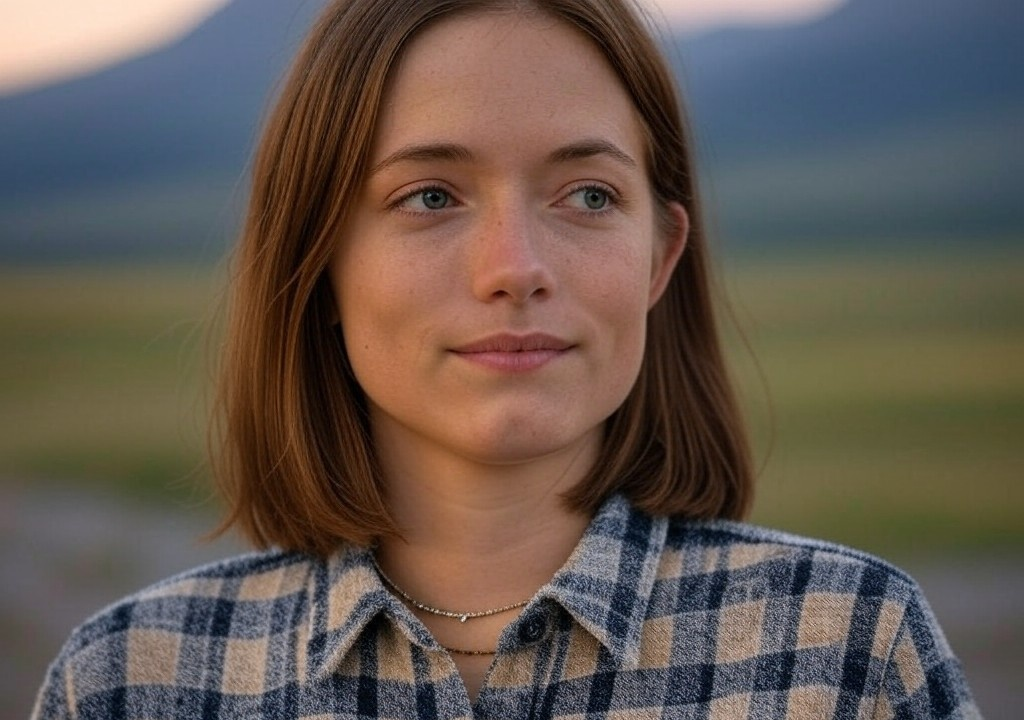On a spring day when the Montana skies were in their full cinematic blue glory, I was standing ankle-deep in muddy water, watching a particularly stubborn calf refuse to cross a creek. My hands were cold, my boots were soaked, and I was muttering words my mother would have washed out of my mouth with soap. That’s when he came trotting by on horseback—the ranch hand my parents had hired for the summer. Wyatt. He gestured towards the calf, made a loud whistle resembling a bird of prey, and just like that, the little guy scampered across.
“I think you’re yelling too much,” Wyatt said, smiling like he already knew how I’d react.
Too much?! If he hadn’t just solved the problem, I might’ve thrown my boot at him. Instead, I fell silent, staring at him like the enigma he was. Wyatt had one of those laconic dispositions that only seem to exist in men who spend their lives surrounded by endless land and unbothered cattle. Though I didn’t understand it at 17, this was the moment when someone—a quiet mentor disguised as a wandering cowboy—saw the potential in me that I couldn’t yet see in myself.
Did He Mean to Change My Life? Probably Not.
Here’s the thing: Wyatt wasn’t the kind of guy to spout aphorisms or give pep talks. To this day, I’m not sure I ever heard him string more than 20 words together at once. But his influence came not through what he said, but by how he carried himself—and how he allowed me the space to rise to my challenges instead of trying to handle them for me.
That summer, Wyatt made it clear that he thought I was capable. Stubborn calf? “You’ll figure it out.” Fence post won’t go into the hard ground? “You’re stronger than you think.” My first experience braiding a horse’s mane, which ended up resembling a drunk spider weaving its web? A few moments of silence, then: “Looks good to me.”
It was maddening at first. If I’d been expecting someone to hold my hand or gently encourage me every step of the way, that wasn’t Wyatt. Instead, his approach went something like this: Here’s a job you probably don’t think you can do. Now, I’m going to stand over here and pretend I don’t see the doubts in your eyes. Just wait—I bet you’ll surprise yourself.
What Wyatt Taught Me About Relationships
Now, you may be wondering: What does all this have to do with dating or relationships? Stay with me—you’ll see.
Looking back, I think the reason Wyatt’s impact stayed with me was his ability to spot something in me that I didn’t yet recognize. And isn’t that what we all want, deep down? Someone who can see the best parts of us, even when we’re covered in dirt and dog hair, second-guessing everything?
This doesn’t just apply to romantic relationships. Often, we let our fears or perceived shortcomings dictate how we show up in connections—with friends, coworkers, or even a stranger we’re chatting with at a coffee shop. We wait for someone else to confirm our worth for us. The problem is, we forget something very important: no one can believe in you for you. Wyatt didn’t teach me confidence outright, but his belief in my abilities gave me the nudge I needed to find it for myself.
Relationships That Lift, Not Fix
In my late twenties, after a string of relationships that felt a bit like wrestling uncooperative calves (too dramatic? maybe), I learned to reflect on Wyatt’s brand of encouragement.
Here’s what I learned to look for in my relationships:
1. Look for Someone Who Sees You as a Whole Person.
A good partner (or mentor, or friend) isn’t going to swoop in like a hero to solve every problem for you. Instead, they’ll recognize your strengths and respect your journey—even if it’s not a path they’d personally walk.
2. Beware of Fixers.
There’s a difference between offering support and trying to fix someone. The latter often comes from a place of control, not care. Wyatt? He didn’t care about controlling my summer chores, so long as I did them in a way that worked for me—crooked braids and all.
3. Sometimes, Silence is the Ultimate Compliment.
Not everyone you love needs to sing your praises all day. Sometimes, the people who believe in you will just stand back—with a quiet smirk—and let you brazenly tackle the dragons you think you can’t slay. That silence is trust, not disinterest.
4. They Build Your Confidence, Not Your Dependency.
The best relationships still leave you standing on your own two feet. Support doesn’t mean crushing weight or becoming someone else’s crutch. It means holding space while you figure it out, seeing your potential even when you temporarily can’t.
The Day I Became the Person Wyatt Saw
It wasn’t until years later, long after Wyatt had trotted out of our lives with no forwarding address, that his lessons clicked. I’d been in Missoula at a reading event, nervously preparing to share a personal poem I’d written—hands sweating, knees wobbling, everything. And then it hit me. Wyatt had faced me with far scarier tasks. If I could coax a wild colt back into a dusty corral with nothing but patience and sheer willpower on a chilly Montana morning, surely, surely, I could read a few words aloud to a small crowd. I smiled, adjusted the mic, and began.
To this day, when I’m about to face something terrifying—whether it’s balancing relationships, saying goodbye, or trying for the fiftieth time to make sourdough bread rise properly—I hear Wyatt’s voice in my head. Sometimes all it says is: You’ll figure it out.
The Takeaway: Be the Person Who Sees
In the sprawling landscape of connections we have—romantic, platonic, or professional—there’s a simple truth I’ve learned: relationships work best when they strengthen the person you already are, not a version of you someone else wants to mold.
So be the person who sees others the way Wyatt saw me. Show up in the lives of your friends, partners, or even strangers with the quiet curiosity of someone who’s not here to fix or change, but to witness and believe. Sometimes, just standing silently with your metaphorical arms crossed, grinning at their scruffy attempts, is all the support they need.
And when in doubt? Throw in a hearty “You’ll figure it out.” It’s heartening advice—and, as history has shown me, wildly accurate.




















